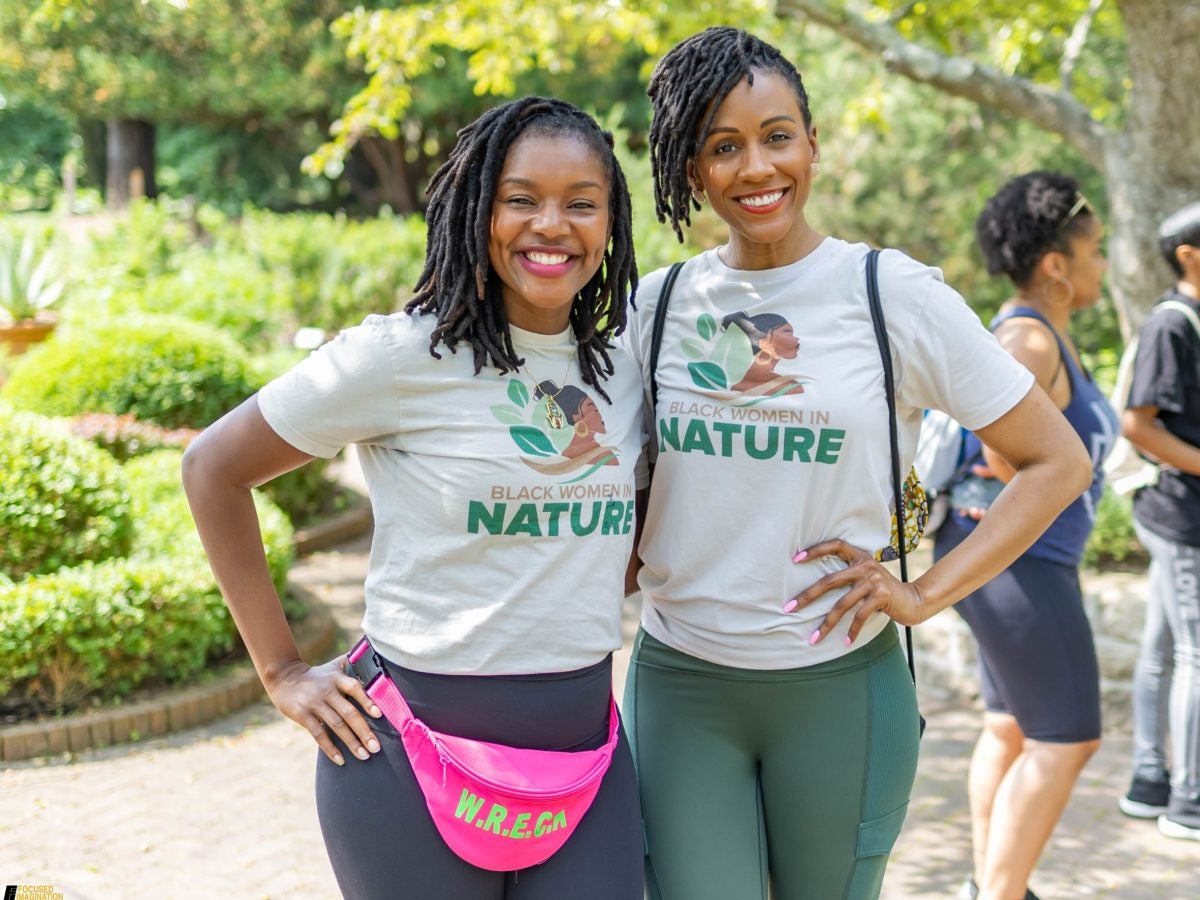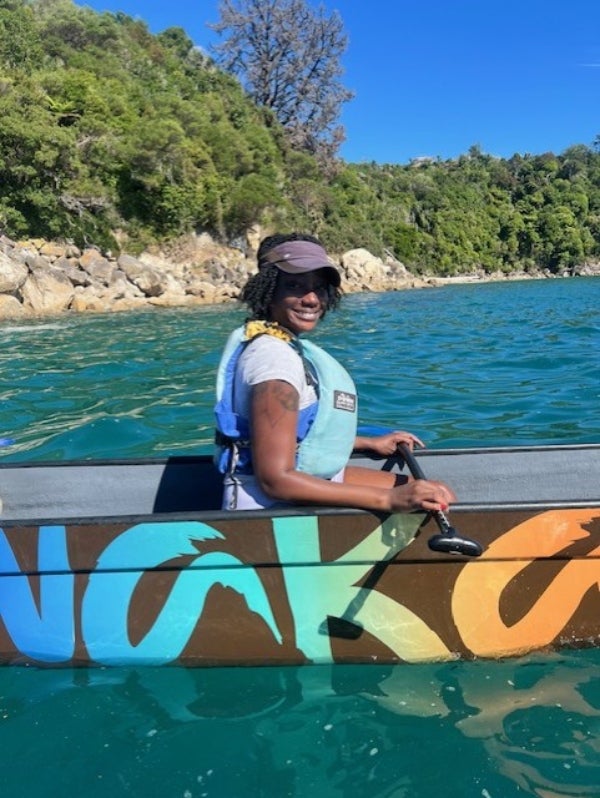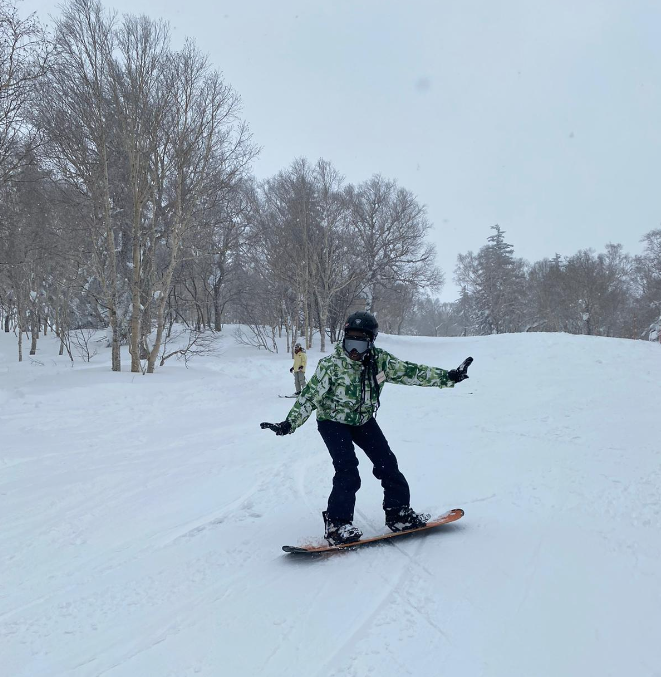
If someone told me that I would become the type of person who would go snowshoeing in rural Japan to see the mountains, I would have laughed. Yet there I was, my boots dragging through the layers of soft snow, being led by a local guide in the Hokkaido region to hike around Lake Mashu and take in the majestic scenery. Despite the cold, I could not get over the serene beauty of the landscape, which seemed unreal at times. It felt peaceful to be surrounded by the sounds of nature and let yourself take in the moment.
I would never describe myself as an “outdoorsy” person. In fact, I was the complete opposite. As a city kid, my idea of nature was taking a walk through Central Park. I guess you can say I was the stereotypical New Yorker who felt more at ease around concrete than greenery. But my travels have turned me into someone who has come to appreciate nature and bask in wonder, allowing me to feel a euphoric sense of peace I didn’t know existed while walking in a misty rainforest to discover hidden waterfalls in Costa Rica, snowboarding in Aspen, kayaking with a Maori guide in New Zealand, snorkeling alongside a dolphin pod off the shores of Kenya, and reaching the top of a wondrous hill in Greenland for the perfect view of the moving icebergs.
I have dealt with debilitating anxiety and depression since I was a teenager. My newfound love of hiking, running, and being outdoors has healed me in many ways. But I’m not alone in feeling this sense of calm. There is power in being surrounded by nature, and it can do wonders for your health. Physically, being in nature has proven to help lower blood pressure, increase vitamin D intake, and even help with your breathing. According to the American Psychological Association, being in nature can also help with cognitive issues like focus, allow you to sleep better, and reduce stress levels — something many Black women struggle with.

Because of our lived experiences dealing with racial microaggressions, family, work, and finances, we often find that stress plays a huge factor in our lives, and it takes away from both our physical and mental health. Black women process stress differently than their white counterparts due to factors like racial discrimination, including in the healthcare system, microaggressions that can occur in the workplace, and our need for strength and resilience during times of adversity.
But even in natural surroundings, we also have to deal with the fact that we are often not found in these spaces. It is rare to see Black faces in advertisements for outdoor activities — but we are growing in numbers, whether it’s hiking, running, camping, or even engaging in sports like snowboarding. According to the Outdoor Foundation, the participation rate for Black people in outdoor recreational activities increased more than five percent in 2022 to 40.7%. Traditional white spaces like camping grounds have also seen growth in the sector, with more Black people taking camping trips and exploring RV travel.
Despite the little growth in the sector when it comes to inclusivity in the outdoors, that hasn’t erased a past of hostility and racism. Historically, we have often felt unwelcome in these spaces. We are harassed when we are running and fishing in our neighborhoods. Even our national parks are reckoning with their history of racism. That’s why communities designed with Black women in mind are so important. When Angela Mitchell and Ivory Levert (pictured at the top of the page) started Black Women in Nature in their hometown of Columbus, Ohio, their goal was to create a safe space for other Black women to find peace of mind amid the spread of COVID-19.

“While people around the world were impacted by the pandemic, Black and brown communities experienced disproportionate levels of stress, COVID-19 related deaths, hospitalizations and health challenges due to pre-existing structural and social inequities,” Mitchell tells ESSENCE. “Making matters worse, Black people were experiencing what we like to call a ‘double pandemic’ due to the murders of George Floyd, Breonna Taylor, and Ahmaud Arbery that took place during that year.”
Through their group, the two encourage other Black women in their area to explore outdoor activities, including hiking, reflective dialogue, and yoga and meditation.
“The systems of racism and environmental inequities have limited Black folks’ access to green spaces and created a disconnect to our ancestral connection to nature,” Levert says. “Black people have always been connected to nature. We are simply helping Black women reconnect to our roots and find healing in ways that have always been available to us.”







Levert, who has a background as a certified yoga and in meditation, connected with Mitchell, who shared fond memories of spending time outdoors in Anchorage, Alaska. Both wanted to show that in times of adversity, the stillness of nature can help us process difficult emotions, which is something Mitchell experienced when her older brother passed away at the age of 39 from Lou Gehrig’s disease. This increased her desire to create a community where Black women could have a chance for the same type of healing.
“Through nature, I experienced the peace that surpasses all understanding,” Mitchell says. “I believe moving your body outdoors is a privilege that many of us take for granted.”
So, the next time you need a break, consider putting your phone down and stopping to take a walk in a nearby park or visiting a destination surrounded by natural wonders for your next trip. Instead of taking city tours, don’t be afraid to venture to the outskirts for a hike to bathe in the beautiful nature around you. I promise it will be worth it.






